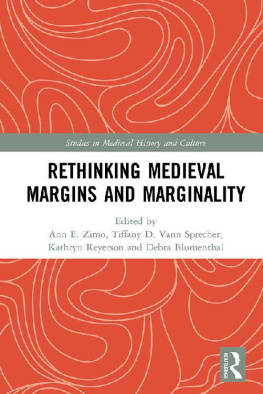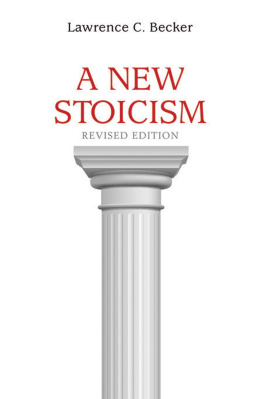Religion, Media, and Marginality in Modern Africa
CAMBRIDGE CENTRE OF AFRICAN STUDIES SERIES
Series editors: Derek R. Peterson, Harri Englund, and Christopher Warnes
The University of Cambridge is home to one of the worlds leading centers of African studies. It organizes conferences, runs a weekly seminar series, hosts a specialist library, coordinates advanced graduate studies, and facilitates research by Cambridge- and Africa-based academics. The Cambridge Centre of African Studies Series publishes work that emanates from this rich intellectual life. The series fosters dialogue across a broad range of disciplines in African studies and between scholars based in Africa and elsewhere.
Derek R. Peterson, ed.
Abolitionism and Imperialism in Britain, Africa, and the Atlantic
Harri Englund, ed.
Christianity and Public Culture in Africa
Devon Curtis and Gwinyayi A. Dzinesa, eds.
Peacebuilding, Power, and Politics in Africa
Ruth J. Prince and Rebecca Marsland, eds.
Making Public Health in Africa: Ethnographic and Historical Perspectives
Emma Hunter, ed.
Citizenship, Belonging, and Political Community in Africa: Dialogues between Past and Present
Felicitas Becker, Joel Cabrita, and Marie Rodet, eds.
Religion, Media, and Marginality in Modern Africa
Religion, Media, and Marginality in Modern Africa
Edited by Felicitas Becker, Joel Cabrita, and Marie Rodet
Ohio University Press
Athens
Ohio University Press, Athens, Ohio 45701
ohioswallow.com
2018 by Ohio University Press
All rights reserved
To obtain permission to quote, reprint, or otherwise reproduce or distribute material from Ohio University Press publications, please contact our rights and permissions department at (740) 593-1154 or (740) 593-4536 (fax).
Printed in the United States of America
Ohio University Press books are printed on acid-free paper

28 27 26 25 24 23 22 21 20 19 18 5 4 3 2 1
Library of Congress Cataloging-in-Publication Data
Names: Becker, Felicitas, 1971- editor, writer of introduction. | Cabrita, Joel, 1980- editor, writer of introduction. | Rodet, Marie, editor.
Title: Religion, media, and marginality in modern Africa / edited by Felicitas Becker, Joel Cabrita, and Marie Rodet.
Other titles: Cambridge Centre of African Studies series.
Description: Athens : Ohio University Press, 2017. | Series: Cambridge Centre of African Studies series | Includes bibliographical references and index.
Identifiers: LCCN 2017053678| ISBN 9780821423035 (hardcover ; alk. paper) | ISBN 0821423037 (hardcover ; alk. paper) | ISBN 9780821446249 (pdf)
Subjects: LCSH: Mass media in religionAfrica. | Christianity in mass media. | Islam in mass media. | Digital mediaAfrica. | Digital mediaReligious aspects. | Social mediaAfrica. | Social mediaReligious aspects. | Marginality, SocialAfrica. | Marginality, SocialReligious aspects.
Classification: LCC BV652.97.A35 R45 2017 | DDC 261.52096dc23
LC record available at https://lccn.loc.gov/2017053678
Contents
FELICITAS BECKER AND JOEL CABRITA
PART I: ENGAGEMENTS WITH STATE POWER IN THE COLONIAL PERIOD AND BEYOND
SEAN HANRETTA
JRG HAUSTEIN
DAVID M. GORDON
HEIKE BEHREND
PART II: CLAIMS TO TRADITION AND PARTICULAR IDENTITIES IN THE SHADOW OF THE STATE
BRUCE S. HALL
LIZ GUNNER
ASONZEH UKAH
PART III: RELIGIOUS COMMUNITY BUILDING ON THE MAR GINS
KATRIEN PYPE
ANDR CHAPPATTE
MARIA FRAHM-ARP
Acknowledgments
The origins of this edited collection lie in a conference organized by the three editors and held at SOAS, University of London, in March 2013. We are grateful to all the participantsmany of whom are represented in the present volumefor their rich papers. The conference was funded by an Arts and Humanities Research Council Research Networking Award (held by Becker and Cabrita). We are also grateful to the Faculty of Arts and Humanities at SOAS for their generous support. Our thanks also to the editors of the Cambridge Centre of African Studies Series for their support of the volume, as well as to Gillian Berchowitz, the director and editor in chief of Ohio University Press. Finally, we are grateful to the anonymous reviewers who offered valuable feedback on earlier iterations of this volume.
Introduction
Religion, Media, and Marginality in Modern Africa
FELICITAS BECKER AND JOEL CABRITA
THE PRESENT COLLECTION ENTERS AN ALREADY LIVELY FIELD, AS the role of media in Africas ebullient religious activism has engaged the attention of scholars for the last couple of decades. And for good reason: a salient feature of Islamic revivals and expanding Pentecostal churches alike is the use of TV, video, mobile phones, and the internet and the claiming of audible and visible space through loudspeakers and billboards. Part of the aim of this collection, though, is to go beyond the most attention-grabbing and public forms of media use and to include such relatively low-key examples as handwritten religious scripture circulating only among a small group of believers, pamphlets with similarly limited circulation, and registration forms. The objects just enumerated already point to another intention of this volumenamely, to examine old media, such as handwriting and print, and new media, such as video and the internet, in the same frame, thereby avoiding an evolutionary distinction.
Although with a few important exceptions recent literature has defined media in this context as new electronic and digital media,
There are two main reasons for doing so. First, the variety of processes and outcomes traceable across these media, combined with the similarities between outcomes involving media of different generations, enable us to challenge a tendency that appears occasionally in the literaturenamely, to assume a kind of evolutionary progression, where different generations of media are associated with different social processes and outcomes. Broadly speaking, written media, and especially print media, tend to be associated with bringing people together, developing national publics, and expanding religious congregations. Conversely, in much of the literature on new electronic and digital media, the dominant theme concerns the fragmentation of audiences, especially national ones, that were formerly relatively homogeneous. This is seen in the development of niche audiences and diverse, competing religious claims, even as the new congregations thus established strive for overseas contacts and see themselves within a global frame of reference.
...
Of course, these associations are undeniable in some ways. Clearly, in Africa, the mid-twentieth century was an era of popular nationalism as well as of expanding reading publics, epistolary networks, and radio audiences. We think that it is important, though, not to take these associations too readily as evidence of causality. Granted, mass-circulation newspapers are bound to have a homogenizing effect on the knowledge and opinion of their reading publics, and there is no denying that communication via the internet supports the development of very specific subcultures whose members would otherwise find it much harder to connect. But mass-circulation newspapers can fall out of favor and end up minoritarian, while websites, too, can serve mass audiences.










